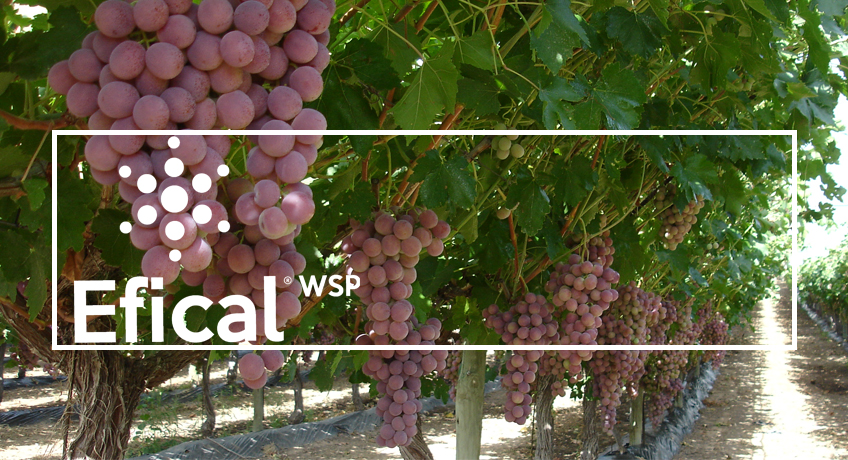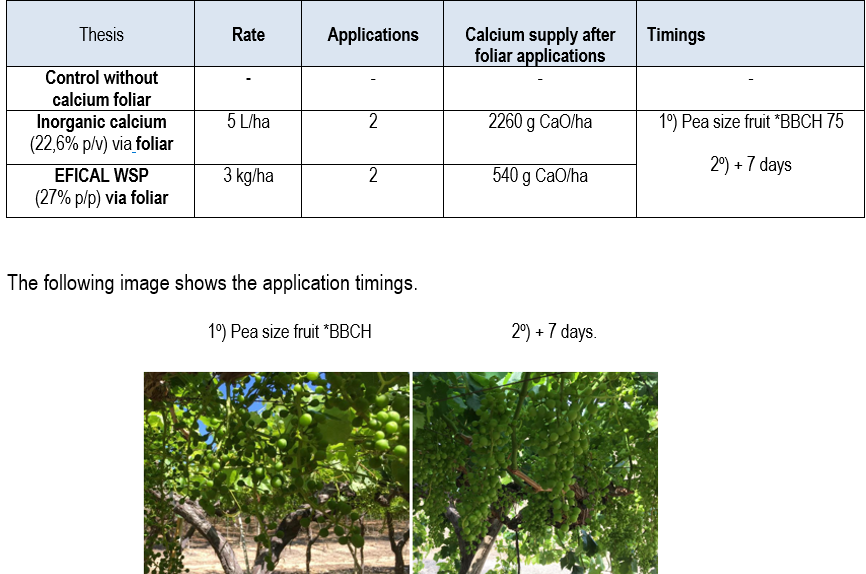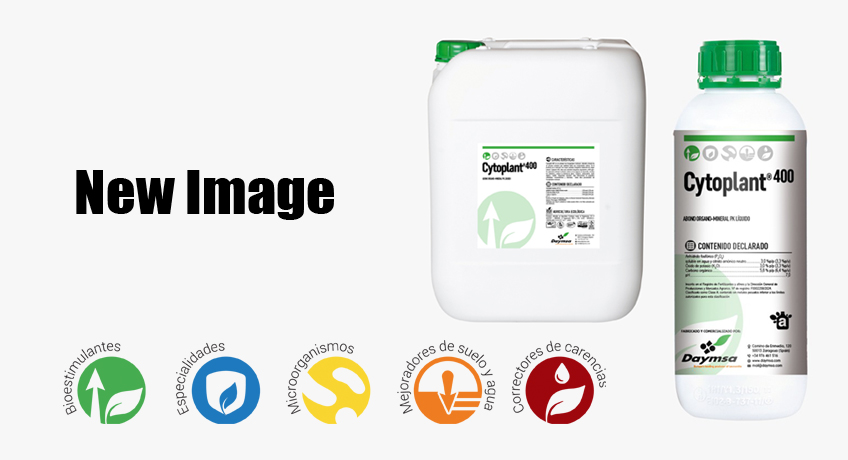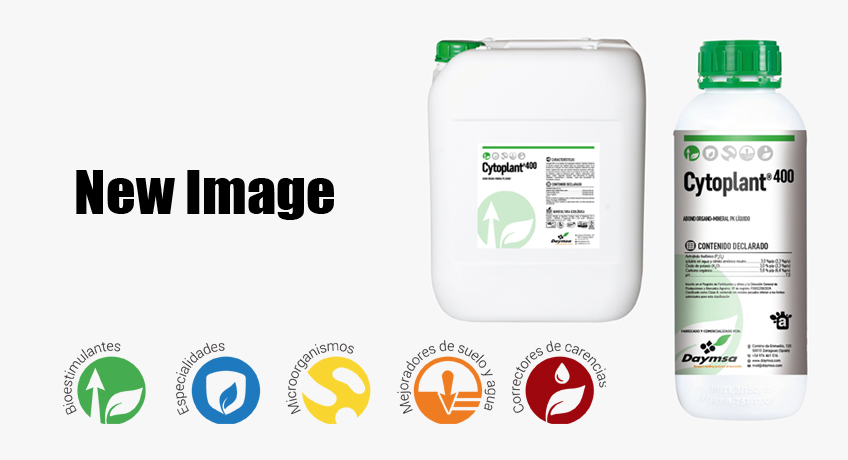
Calcium and quality increase in grapes after application of EficalWSP

DAYMSA presents the benefits of using EficalWSP in the cultivation in grapes after its study carried out in Blanca, in the province of Murcia with Flame seedless variety.
DAYMSA, European leader in the production of biostimulants with a clear commitment to offer natural solutions for the agriculture of tomorrow, reaffirms its commitment to EficalWSP, a nutritional product with a great wealth of assimilable calcium, formulated with free amino-acids and organic complexes that achieve a better absorption and translocation of calcium through the tissues of the plant.
It is also a product that can be used in Organic Agriculture according to EC Regulation 834/2007 and 889/2008, NOP and JAS regulations. Control ECOCERT SA F-32600
Benefits of EficalWSP
The formulation of EficalWSP is designed to facilitate the absorption and distribution of calcium within the plant as it is complexed with organic substances, in addition to stimulating the growth of new roots that will be points of greater calcium absorption. It increases the concentration of calcium in the fruit and green parts, improving firmness and post-harvest quality by being a source of organic calcium that is highly assimilable by the plant.
In this sense, EficalWSP also stands out for its easy handling that it can be used both via foliar and root application in a wide variety of crops with a fast and high solubility in water.
Proper fertilisation with EficalWSP improves plant tissue and reduces the risk of disease penetration. This will be reflected in a better post-harvest life.
Trials carried out on grapes
Daymsa has recently carried out several trials on grapes to study the benefits of EficalWSP.
This was carried out in Blanca, Murcia by the testing company GOES. The objective was to evaluate the increase of calcium in fruit, harvest quality and post-harvest life with EficalWSP application and another source of inorganic calcium via foliar.
The trial was carried out on the Flame seedless variety, the first application was made at the same time as the gibberellic treatment with an application volume of 800 L/ha and the second application 7 days later.

Results
The results at harvest showed increases in size and weight of +5% and +12% respectively after treatments with EficalWSP. This effect on weight and size was not seen with the inorganic calcium (calcium chloride) treatment.

The grapes with the highest calcium content at harvest were those treated with Efical WSP 3kg/ha (+25% bound Ca and +12% total Ca than the control) with significant differences. The treatment with inorganic calcium at 5L/ha resulted in a lower assimilated calcium content despite applying more grams of calcium per hectare.
Berry shatter resistance was measured with a texturometer. It increased with the EficalWSP treatments (result of the structural function of calcium bound in the cell wall).
Post-harvest, after a period of cold storage and shelf life, the percentage of rotten berries was counted. The results showed a 35% reduction in rot compared to the control after the application of Efical WSP.
Conclusion
EficalWSP is suitable for grapes as no stains were observed after foliar applications.
The foliar application of EficalWSP resulted in more assimilated calcium by the plant. Moreover, the organic molecules of the formulation stimulated the growth of the fruit leading to a larger harvest, with increases in grape size and weight of +5% and +12% respectively. Considering an average of 80-120 grapes per bunch on the Flame Seedless variety, this leads to an increase of +56 to +84 grams per bunch, which is a good result.”
Post-harvest, EficalWSP managed to reduce damage by botrytis compared to the untreated control thanks to the calcium strengthening of the cell walls, therefore preventing the pathogens to penetrate the fruits.


